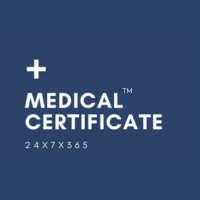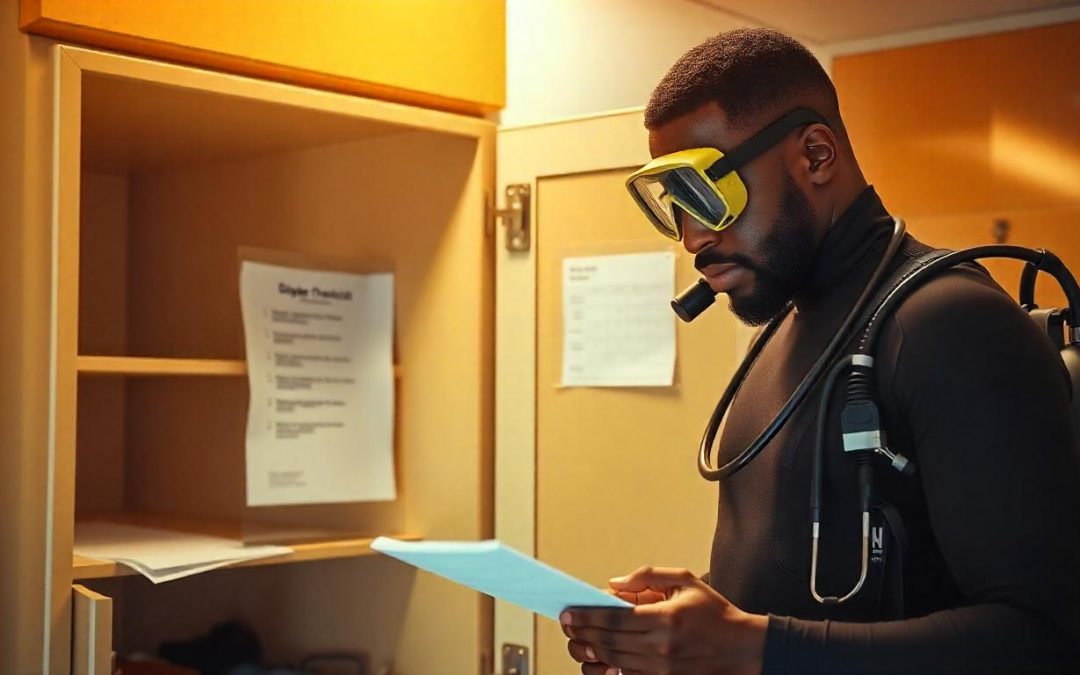Among the documents one prepares for their first ever scuba diving trip is a clinical certificate. While diving does offer fantastic experiences underwater, it also evokes physically distressing circumstances. A scientific certificate ensures you are fit to deal with those challenges accurately. Responsible facilities of divers’ training and other organizations including PADI or SSI state that you should provide certificates of reasonable fitness to dive. Thus, in whether or not you are, or now no longer, planning your first dive or are a seeker of certification, this manual will aid you in navigating everything you need to recognize regarding clinical certificates necessities for fresh divers.
Why Do New Divers Need a Medical Certificate?
Scuba diving entails publicity to underwater strain, cold temperatures, and physical exertion. These situations can put a pressure on your heart, lungs, and ears, making it essential for divers to be in suitable bodily fitness. A medical certificate ensures you’re in shape to address the challenges of diving and facilitates to reduce the threat of fitness complications.
Diving companies require these certifications for several reasons:
Safety: Underwater situations together with strain modifications, strenuous swimming, and cold temperatures can exacerbate fitness troubles, in particular respiratory and cardiovascular situations.
Pressure Impact: Pressure increases substantially as you dive deeper, affecting your respiratory, coronary heart charge, and ear equalization.
Avoiding Emergencies: A medical certificate ensures divers are fit enough to keep away from clinical emergencies at some stage in a dive, in which on the spot assistance may not be to be had.
Legal Compliance: Many dive faculties and operators require scientific clearance to ensure you meet protection standards.
Who Needs a Medical Certificate?
In most cases, all new divers are required to publish a clinical certificate before beginning a diving course. Specific health conditions may additionally require a more in-depth examination, however common fitness issues that could necessitate a scientific review include:
Respiratory situations: Asthma, chronic obstructive pulmonary sickness (COPD), and different lung issues can pose serious dangers whilst diving.
Cardiovascular fitness problems: Heart situations, excessive blood strain, or abnormal heartbeats could make diving dangerous due to the physical stress.
Ear and sinus troubles: Conditions that have an effect on strain equalization, which includes ear infections or sinus problems, may want to result in injury for the duration of dives.
Neurological issues: Conditions which include epilepsy or seizures could pose excessive risks at some stage in underwater sports.
Diabetes: Though some divers with well-managed diabetes can be allowed to dive, it’s essential to go through a thorough clinical assessment.
How to Get a Medical Certificate for Diving
Getting a clinical certificate for scuba diving includes a few trustworthy steps. You can choose to go to a doctor individually or choose the more and more famous method of on-line consultations.
Step 1: Understand the Medical Requirements
Before scheduling your clinical exam, it’s a very good idea to get yourself up to speed with the standard fitness exams for diving fitness. Some scientific situations can also require a similar exam or remedy earlier than you’re cleared to dive.
The primary areas of consciousness are:
Lung function: Your capability to respire under pressure is essential for diving protection.
Heart health: The health practitioner will check your cardiovascular system to make certain it can manage the bodily exertion of diving.
Ear and sinus fitness: Your ears ought to equalize stress successfully to keep away from soreness or injury.
Overall health: Diving requires bodily exertion, so well-known health tiers also are assessed.
Step 2: Choose Between In-Person or Online Evaluation
You can select to go to a doctor or use an internet carrier like MedicalCertificate.in for convenience.
In-Person Examination:
You can agenda a visit with a fashionable practitioner or a dive remedy specialist. They will perform a physical exam and check your common health.
Online Consultation:
Many systems now provide on-line medical certificates for divers. After a teleconsultation with a licensed doctor, you can acquire your certificate via e-mail. This is mainly useful in case you’re in good fitness and looking for a short solution.
Step 3: Undergo the Medical Examination
During the exam, the doctor will compare the following:
Respiratory Health:
Your lungs will be assessed to decide if you may manipulate respiration underneath the accelerated strain of underwater environments.
Tests may include spirometry, where you breathe into a tool that measures lung function.
Cardiovascular Evaluation:
The physician will measure your coronary heart fee, check your blood stress, and verify coronary heart function. In some instances, an electrocardiogram (ECG) may be required.
Ear and Sinus Check:
Your ears and sinuses must be characteristic well for pressure equalization. Chronic ear infections or sinus problems can motivate discomfort or damage at the same time as diving. The doctor may additionally conduct simple checks to test your potential to equalize pressure.
General Fitness:
You’ll be asked about any medicinal drugs, beyond surgical procedures, or current clinical situations that might have an effect on your capacity to dive correctly. Be honest, as this helps make certain your safety.
Step 4: Receive Your Medical Certificate
Once the health practitioner has finished your evaluation, they’ll trouble your clinical certificate in case you’re deemed match to dive. The certificate may be received in two forms:
Digital Copy:
If you opt for an online session, a digital replica of your certificates may be despatched thru email, typically within 30 minutes.
Physical Copy:
For in-character consultations or if required by means of your dive college, a physical replica might be supplied. It can also be mailed to you within 3-4 enterprise days if carried out on-line.
What Happens If You Don’t Pass the Medical Exam?
If you don’t pass the scientific exam, don’t panic. Your physician will offer recommendations for improving your health before you try to dive again. Here’s what would possibly happen:
Respiratory Issues: If you’ve got respiratory or conditions like bronchial asthma, your physician can also advocate remedies or lifestyle changes to improve lung function. Once managed, you may reapply for the certificate.
Cardiovascular Problems: If heart conditions are detected, the physician will manual you on a way to manipulate the problem before diving.
Ear or Sinus Problems: If you have issues equalizing stress, treatments or sporting activities might be encouraged to assist clear up the difficulty.
Once the hassle is resolved, you could retake the examination and probably get cleared for diving.
Diving Organizations and Their Medical Certificate Requirements
Different diving groups have varying necessities, but usually, they all require medical clearance to ensure protection. Some of the important thing businesses include:
PADI (Professional Association of Diving Instructors):
PADI calls for a completed clinical questionnaire. If any health worries are indicated, a medical certificate from a health practitioner is obligatory earlier than diving.
SSI (Scuba Schools International):
SSI additionally mandates a scientific evaluation for divers with any history of fitness situations, ensuring their health for underwater activities.
BSAC (British Sub-Aqua Club):
BSAC calls for divers to fill out a clinical questionnaire and provide a certificate if any clinical dangers are referred to.
Conclusion: Dive Safely with Your Medical Certificate
Obtaining a medical certificate is an essential part of your journey to becoming a scuba diver. It ensures that you are physically fit and capable of handling the challenges of diving, from managing underwater pressure to coping with physical exertion. With health checks focused on your respiratory, cardiovascular, and general physical fitness, the certificate provides peace of mind not only for you but also for your dive instructors.
By getting your medical certificate, you take a critical step toward ensuring a safe, enjoyable diving experience. And with platforms like MedicalCertificate.in, the process has never been more convenient, allowing you to get certified quickly from the comfort of your home. So, before you dive into the ocean depths, ensure you’re medically cleared—then, explore the underwater world safely and confidently.
Your adventure awaits!
Click the link given below to obtain a medical certificate within 30 mins!

